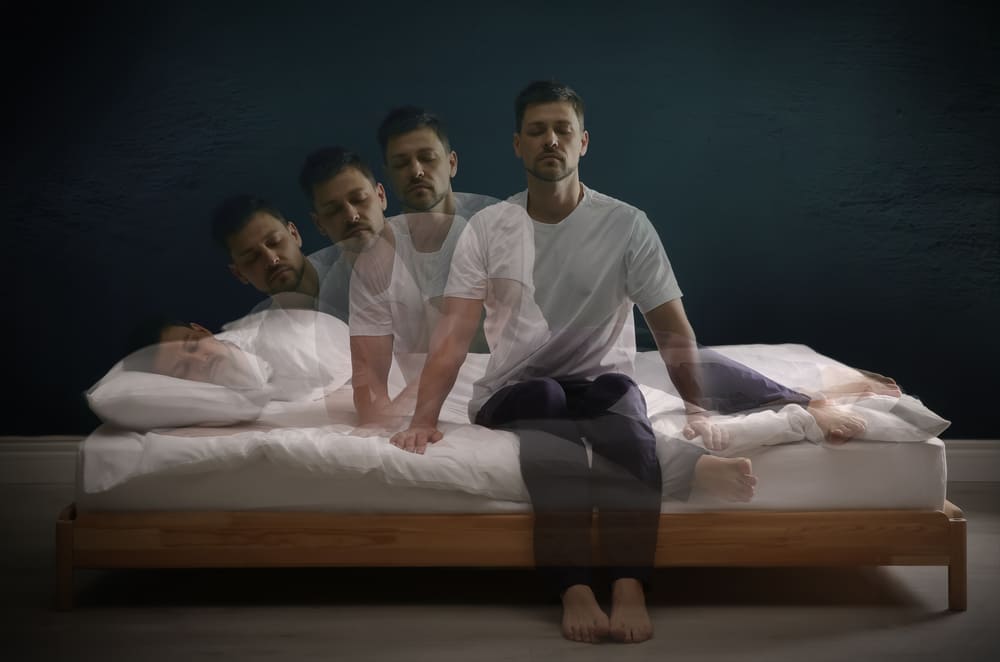This article will help educate readers about the confusion and overlap between hypersomnia and Narcolepsy and introduce idiopathic hypersomnia as a key point of discussion.
Introduction
Both hypersomnia and Narcolepsy are conditions that cause individuals to struggle with extreme sleepiness, although their causes and clinical symptoms differ. Despite the differences, there is a lot of overlap between the two conditions, and both can have an impact on your quality of life.
Without an accurate diagnosis and proper treatment, hypersomnia can have a withering effect, as can Narcolepsy, where your daily function becomes impeded little by little as you build up a sleep deficit and find yourself unable to give your body and bring the sleep you need to function properly. Long-term, this can have serious ramifications for things like relationships, social interactions, physical health, secondary mental health disorders, career progression, and more.

-Defining Hypersomnia and Narcolepsy
The DSM-5 classifies the group of conditions, which include hypersomnia, idiopathic hypersomnia, and Narcolepsy, as “sleep-wake disorders.”
With hypersomnia vs. Narcolepsy, you have key differences in terms of diagnostic criteria.
Hypersomnia criteria
Hypersomnia is when an individual struggles with excessive sleep and sleepiness. No matter how much they might sleep, up to 10 hours or more per night, or how many naps they take during the day, they still struggle with excessive sleepiness and impairment to daily function. It’s not uncommon for someone with hypersomnia to fall asleep quickly and sleep for a reasonable amount of time but still experience sleepiness.
- Individuals must have periods of hypersomnia that take place at least three times per week, every week for at least three months.
- Hypersomnia has to have significant impairment in things like cognitive function, social function, occupational function, or daily tasks.
A diagnosis can only be made when the symptoms are not explained by any other sleep disorder, including Narcolepsy, nor can the symptoms be explained by medications or substance abuse.
Narcolepsy criteria
For Narcolepsy vs hypersomnia, there are three categorizations that apply to Narcolepsy, which do not apply to hypersomnia. With Narcolepsy, an individual might take naps during the day or fall asleep quickly, but they also must experience one of the following:
- cataplexy,
- hypocretin deficiency,
- characteristic abnormalities on their nocturnal polysomnogram
A diagnosis is only achieved when an individual regularly lapses into sleep or has an irrepressible need to sleep at least three times per week for at least three months in a row with episodes of cataplexy, measurable hypocrite and deficiency in their cerebrospinal fluid, and REM sleep latency less than or equal to 15 minutes as revealed by nocturnal sleep polysomnography.

-Diagnosing Hypersomnia and Narcolepsy
Diagnosing hypersomnia can be a challenging process because there isn’t a specific test or any type of blood work that can be done. Instead, a diagnosis is confirmed after other conditions have been ruled out.
In general, you must have:
- Symptoms of hypersomnia for at least three months
- Symptoms are severe enough that they are impacting daily function
With Narcolepsy vs hypersomnia, diagnosing Narcolepsy is significantly easier because it has the same symptoms, but an individual can also have their cerebrospinal fluid tested or undergo nocturnal sleep polysomnography to verify sleep latency.
-Treatment Options and Management Strategies
Very little research exists concerning the causes of idiopathic hypersomnia, but despite that, there are several treatment options available. Treatment for hypersomnia vs. Narcolepsy is a very personalized form of care that meets the severity of your symptoms and your needs.
In many cases, therapy is used to help change the relationship you have with your symptoms. For hypersomnia, medication might also be suggested to help you sleep. Medication is more likely to be administered to manage Narcolepsy, particularly because individuals who struggle with Narcolepsy are unable to control their REM cycles, which means they can’t achieve restorative sleep, and this can have a severe impact on health and daily function if left untreated.
Hypersomnia does not have this issue of inadequate restorative sleep, so therapy is more effective in treating hypersomnia or idiopathic hypersomnia.
Sleep paralysis and hallucinations are strongly associated with Narcolepsy but do not happen with hypersomnia. Medication and therapy combined can offer effective measures to overcome things like cataplexy, sleep paralysis, and issues with restorative sleep.
-The Patient Experience: Living with Hypersomnia and Narcolepsy
The patient experience differs from one condition to the next.
Alice lives with hypersomnia. Even though she gets adequate sleep every night, with a proper sleep routine where she is in bed by 9:00 p.m. and wakes up at 6:00 a.m., she struggles with extreme sleepiness throughout the day. There are days when her sleepiness is so extreme that she cannot stay awake no matter how hard she tries, and she ends up taking naps wherever she sits down, but when she wakes from her nap, she doesn’t feel rested.
Mark is living with Narcolepsy. On good days, he might get out of bed quickly, take stimulant medication, go to work, come home, and still feel very good. But on bad days, all of his willpower goes towards simply keeping his eyes open, and at regular points throughout the day, he has to decide whether he’s going to push through his exhaustion or take a nap. Taking naps on the floor of his office happens a few times per week, and after about 20 minutes, he feels recharged, but that feeling only lasts for another one or two hours, at which point he feels like he hasn’t slept in days all over again.

Idiopathic Hypersomnia
Hypersomnia refers to excessive sleeping. Individuals who struggle with idiopathic hypersomnia get enough sleep at night, usually a minimum of 6 hours, but they still have problems waking up, and they regularly feel tired throughout the day.
Hypersomnia is its own condition under sleep disorders, as is Narcolepsy. Idiopathic hypersomnia is exactly the same as hypersomnia, with a key difference being that it has no clear cause, so you cannot find a cause for your symptoms, and this makes management and treatment a little more challenging.
-Symptoms
Symptoms of idiopathic hypersomnia include prolonged nighttime sleep, difficulty waking from sleep, taking long but unrefreshing naps during the day, and subsequent cognitive dysfunction.
It’s not uncommon for someone experiencing idiopathic hypersomnia to also experience:
- Daytime sleepiness
- Sleeping more than 10 hours every day
- Problems waking to alarm clocks
- Feeling groggy most of the day
- Experiencing extreme sleep inertia
-Treatment
While you might not be able to identify a distinct cause for idiopathic hypersomnia, cognitive behavioral therapy can help you identify thought patterns that might be contributing to or exacerbating symptoms and change them so that you can cope with your symptoms more effectively.
With idiopathic hypersomnia vs. Narcolepsy, you can find a treatment that centers on therapy rather than medication. In addition to this level of psychological support, you can also work toward lifestyle changes that can better control idiopathic hypersomnia vs Narcolepsy. Stimulants can also be used to help keep you awake during the day and overcome cognitive dysfunction and sleepiness.
-Impact on Daily Life
With Narcolepsy vs idiopathic hypersomnia, there remains a similar impact on daily life, including excessive sleepiness, issues with academic achievement because of poor cognitive function, and interference with personal relationships.
Summing Up
There are several differences between hypersomnia vs. Narcolepsy and differences between Narcolepsy vs idiopathic hypersomnia. The main difference between idiopathic hypersomnia and hypersomnia is being able to discern a legitimate cause. The biggest difference between diagnosing Narcolepsy vs hypersomnia is that there are legitimate tests to confirm Narcolepsy whereas with hypersomnia or idiopathic hypersomnia you have to rule out other conditions first.
It is essential to differentiate between all of these conditions in order to find proper treatment. No matter which you have, there are treatment options that include therapy and medications to help manage symptoms.



